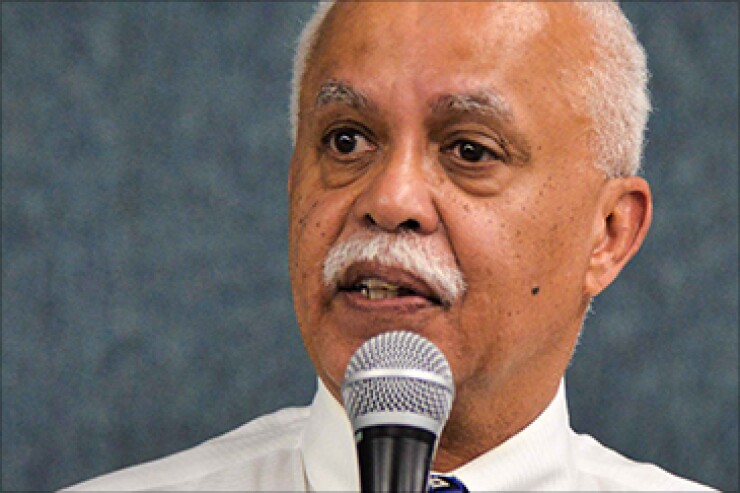
CHICAGO — Wayne County Tuesday released a draft of a
The 12-page agreement broadens the county's power over labor contracts and allows it try to restructure some of its debt or reach settlements with creditors. The county isn't allowed to issue more bonds without state permission.
The 15-member board of county commissioners now must approve the document for it to become effective. County Executive Warren Evans will then have 30 days to negotiate new collective bargaining agreements with unions before he can use the powers outlined in the consent agreement.
"The consent agreement ensures the administration's ability to fully implement its recovery plan, eliminate the $52 million structural deficit and stabilize the county's finances," Evans said in a statement.
The agreement is the latest effort by Michigan's most populous county to deal with a financial position that Evans has warned could lead to insolvency as soon as next summer. Evans asked for state intervention in June, saying a consent agreement would leave most control in local hands. Gov. Rick Snyder declared a financial emergency in Wayne on July 22.
The county board last week voted to enter into the agreement with the state, one of four options available under Michigan law for governments with financial emergency. The others are bankruptcy, a neutral evaluator, or an emergency manager. By opting for the consent decree, the county gives up any chance to pursue bankruptcy, as the state specifically prohibits the county from taking any steps toward Chapter 9 while it is operating under the decree.
Detroit, which is Wayne's largest city, ended up filing for bankruptcy after its own consent agreement with the state failed after less than a year.
On the issue of debt, the decree requires Wayne to continue to make timely debt payments. It also allows Wayne to "enter into agreements with creditors or other persons or entities for the payment of existing debts, including the settlement of claims by the creditors," the document says. "The county also may enter into agreements with creditors or other persons or entities to restructure debt on terms, at rates of interest, and with security as agreed among parties, subject to approval by the state Treasurer."
The debt includes bonds, capital lease transactions and certificates of participation, lease transactions, contractual payment obligations supporting debt issued by or on behalf of the county. It does not include future projected pensions or OPEB obligations.
The agreement also says the county cannot take any action that would impair or impede its ability to make payments on delinquent tax notes. The county issued $186 million of the notes in June, part of an annual borrowing to finance payments to local governments to cover their late property tax collections.
The consent agreement also gives the county until Jan. 31 to present the state with a plan for its abandoned jail in downtown Detroit. The facility, which was financed with $200 million of bonds, has been abandoned since 2013 due to cost overruns.
On the labor side, the agreement gives Evans the powers of an emergency manager over labor contracts after 30 days of so-called good faith negotiations. The powers relate to "wages, hours, and other terms and conditions of employment, whether economic or noneconomic, for county employees previously covered by the expired collective bargaining agreement," according to the document.
The county cannot sell any significant assets or transfer the powers or responsibility of the Wayne County Airport Authority, which runs Detroit's main airport, without state approval.
Michigan will give the county financial management and technical assistance under the terms of the deal, including assistance on revenue estimating conferences and two-year budgeting. The 12-page agreement includes more than three pages devoted to various fiscal and budgeting procedures, including a requirement that Wayne hold a revenue-estimating conference twice a year, submit monthly reports to the state and an annual audit.
The state Treasurer will decide when to release the county from the agreement.





